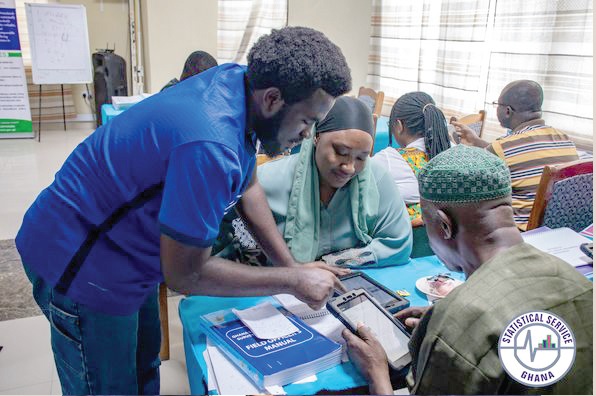
300 Enumerators conducting nationwide survey on learning poverty
More than 300 enumerators will, yesterday began interviewing respondents in over 25,000 households across 1,710 enumeration areas to gather data on learning poverty across the country.
Learning poverty is the inability of children to read and understand a simple text by age 10.
The Eight Ghana Living Standards Survey (GLSS 8), spanning over a period of 12 months, stems from the 2021 Population and Housing Census which indicated that 30.2 per cent of the population six years and older were not literate in any language, highlighting the need for detailed data to support the design and implementation of interventions to reduce illiteracy.
Among others, the survey will generate comprehensive data on the basic literacy and numeracy skills of children and adolescents to measure learning poverty in Ghana.
Each selected household will be visited about five times, and the enumerators will be in the selected communities for 35 days each.
The indicators to be measured include demographic characteristics of houses, educational background, household involvement in agriculture activities, children from four to seven years, expenditure on daily activities, frequently purchased items, sources of income, financial services and household assets, among others.
Dispatch
The Acting Deputy Government Statistician, Edward Asuo Afram, dispatched the field enumerators after a 36-day intensive training at Winneba today (Oct. 28).
He explained that in advanced countries, data management is taken seriously, which has been a guiding principle for the Ghana Statistical Service (GSS), saying that without accurate measurements, the GSS could not effectively improve living conditions.
He further reminded the field officers of the vital role that accurate data plays in shaping effective economic management.
To ensure accurate data management, Mr Afram said unlike in previous years, the GSS was introducing senior interviewers as second supervisors to ensure data quality.
"The accuracy of the data is important, and that is why we have taken the time to take you through the training.
“Think about accuracy because it’s very important. Make sure that you have also received all the answers to the questions,” he stressed.
Findings
The Coordinator of the GLSS8, Abena Asamoabea Osei-Akoto, said the survey findings were expected to inform policy decisions on education and social development.
The survey data, she said, would also contribute to tracking progress on 74 out of 169 Sustainable Development Goals (SDGs) and 98 SDG indicators.
She called on the public to participate fully in the exercise by responding accurately to the questions adding, that the data collected would contribute to the development of policies that address the needs of Ghanaians and improve overall standards of living.
